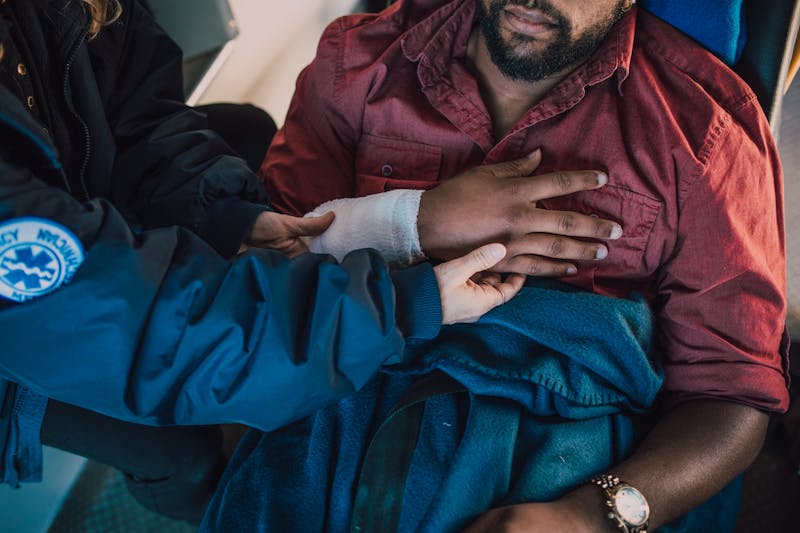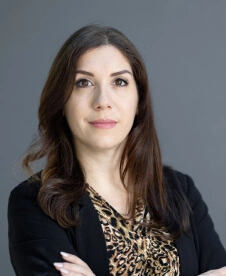Can Men Apply for VAWA Protection?

The Violence Against Women Act (VAWA) is often misunderstood, particularly when it comes to who can benefit from its protections. Despite its name, VAWA isn’t exclusively for women—it extends to anyone—regardless of gender—who has suffered abuse at the hands of a U.S. citizen or lawful permanent resident spouse, parent, or child. This includes men who may have experienced domestic violence or abuse in a relationship.
The Reality of VAWA: Beyond Its Misleading Name
VAWA, enacted in 1994, was intended to be a landmark protection for domestic violence victims. However, like many aspects of U.S. immigration law, its application is more complex than it appears at first glance.
Here’s a crucial point that’s often overlooked: VAWA is gender-neutral. Yes, men can and do apply for VAWA protection. It’s a fact that seems to get lost in the bureaucratic maze of immigration processes.
Who’s Eligible for VAWA Protection?
Let’s break down who can actually use VAWA protection:
- Spouses of U.S. citizens or lawful permanent residents
- Children of U.S. citizens or lawful permanent residents
- Parents of U.S. citizens (the citizen child must be 21 or older)
Importantly, these categories apply regardless of the applicant’s gender. A man married to a U.S. citizen or green card holder who’s suffering abuse has just as much right to seek VAWA protection as a woman in the same situation.
The Overlooked Issue: Male Victims of Domestic Violence
Our society, and by extension, our legal system, often fails to recognize or adequately address male victims of domestic violence. This societal blind spot is reflected in and amplified by the immigration system, creating additional barriers for men seeking protection.
The numbers speak for themselves: according to the Centers for Disease Control, 26% of men have reported experiencing sexual and physical violence or stalking by a partner. Yet, resources and support for these men are often scarce or non-existent.
How to Apply for VAWA as a Man
The process of applying for VAWA protection is technically the same regardless of gender, but that doesn’t mean it’s equitable in practice.
Here’s what applicants face:
- Evidence Gathering: This involves collecting documentation of abuse, which may include police reports, medical records, or affidavits from witnesses.
- Form I-360 Completion: This is the Petition for Amerasian, Widow(er), or Special Immigrant form used for VAWA self-petitions.
- Personal Statement: Applicants must describe their relationship and the abuse in detail.
- Supporting Documentation: This includes proof of the relationship to the abuser, their U.S. citizenship or permanent resident status, and evidence of shared residence.
- Application Submission: The completed package is sent to U.S. Citizenship and Immigration Services (USCIS).
While these steps are the same on paper, male applicants often face additional challenges. Societal stigma, disbelief from law enforcement or immigration officials, and a lack of male-focused resources can all complicate the process.
Legal Rights of Male VAWA Applicants
It’s crucial to understand that men have the same legal rights as women under VAWA. These include:
- Confidentiality: USCIS is prohibited from disclosing information about a VAWA application to anyone, including the abuser.
- Work Authorization: Approved VAWA self-petitioners can apply for work permits.
- Path to Permanent Residency: Successful VAWA applicants may be eligible to apply for a green card.
- Protection from Removal: VAWA applicants may be protected from removal proceedings while their application is pending.
While VAWA provides crucial protections, we must acknowledge the deep flaws in our immigration system. The process is often lengthy, complex, and inconsistent. Male applicants may face additional scrutiny or skepticism, reflecting broader societal biases.
Moreover, the system’s approach to domestic violence cases often fails to account for the nuanced realities of abusive relationships. This can make it challenging for applicants, especially men, to meet the burden of proof required for a successful VAWA petition.
Steps for Men Applying for VAWA Protection
If you’re a man experiencing domestic violence and considering a VAWA application, here are some steps to consider:
- Prioritize Safety: If you’re in immediate danger, call 911 or seek a safe place to stay.
- Document the Abuse: Keep a detailed record of incidents, including dates, times, and any evidence.
- Seek Support: Reach out to domestic violence hotlines or support groups. While many services are geared towards women, resources for male victims do exist.
- Consult an Immigration Attorney: An experienced attorney can guide you through the complex VAWA application process and help you understand your rights.
VAWA, despite its name, offers vital protections to individuals of all genders who are victims of domestic abuse. However, societal stigma and systemic biases create additional hurdles for male applicants.
Recognizing these challenges is the first step toward addressing them and ensuring that all victims of domestic violence, regardless of gender, can access the protections they need and deserve.
The road to safety and stability through VAWA may be challenging, particularly for male applicants. But with the right support and information, it’s possible to navigate this flawed system and work towards a life free from abuse.
If you’re experiencing abuse and need help applying for VAWA, the Law Office of Lina Baroudi is here to support you. Don’t let societal stereotypes hold you back from the protection you deserve. Contact us today to learn how we can help you on the path to safety and security.



